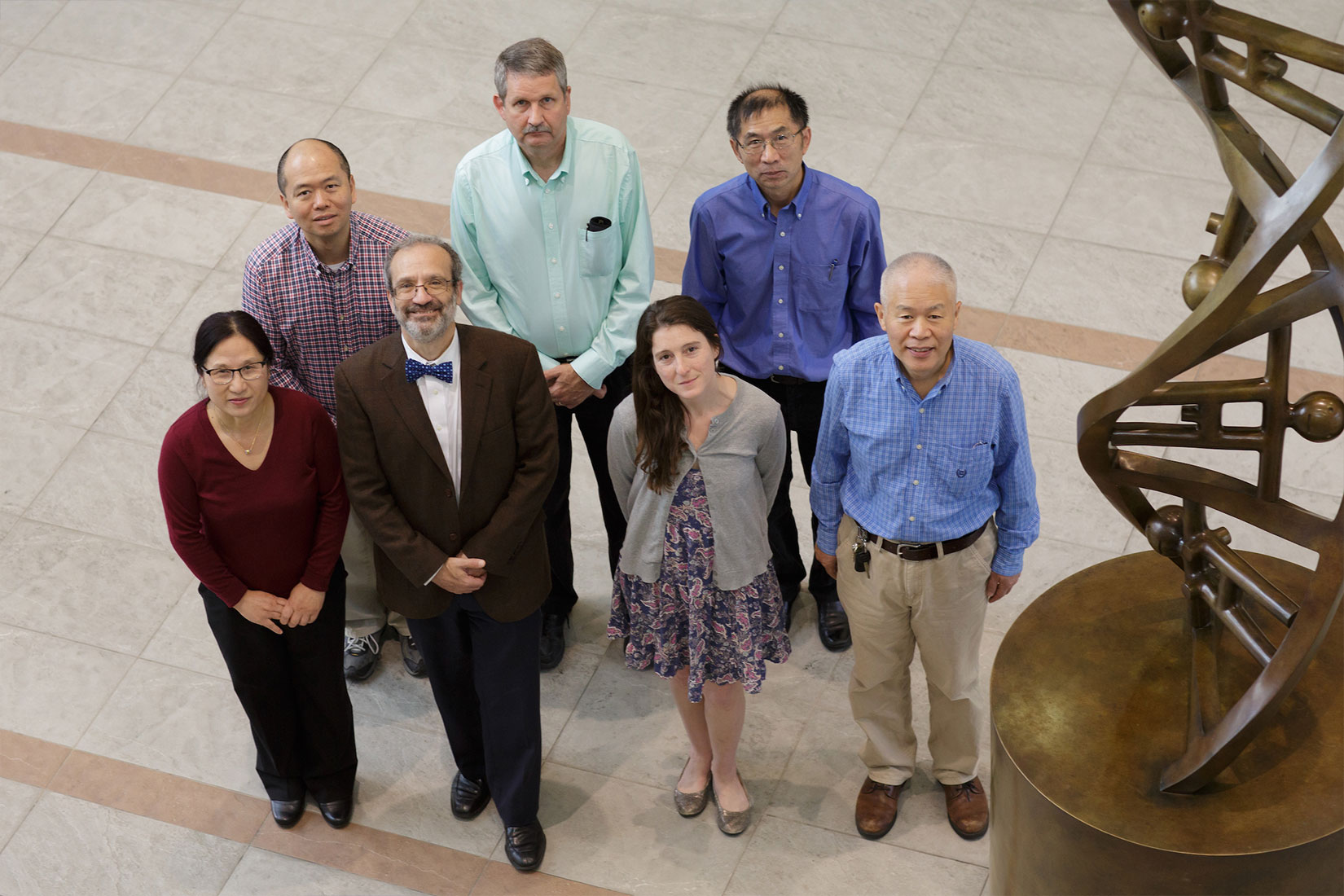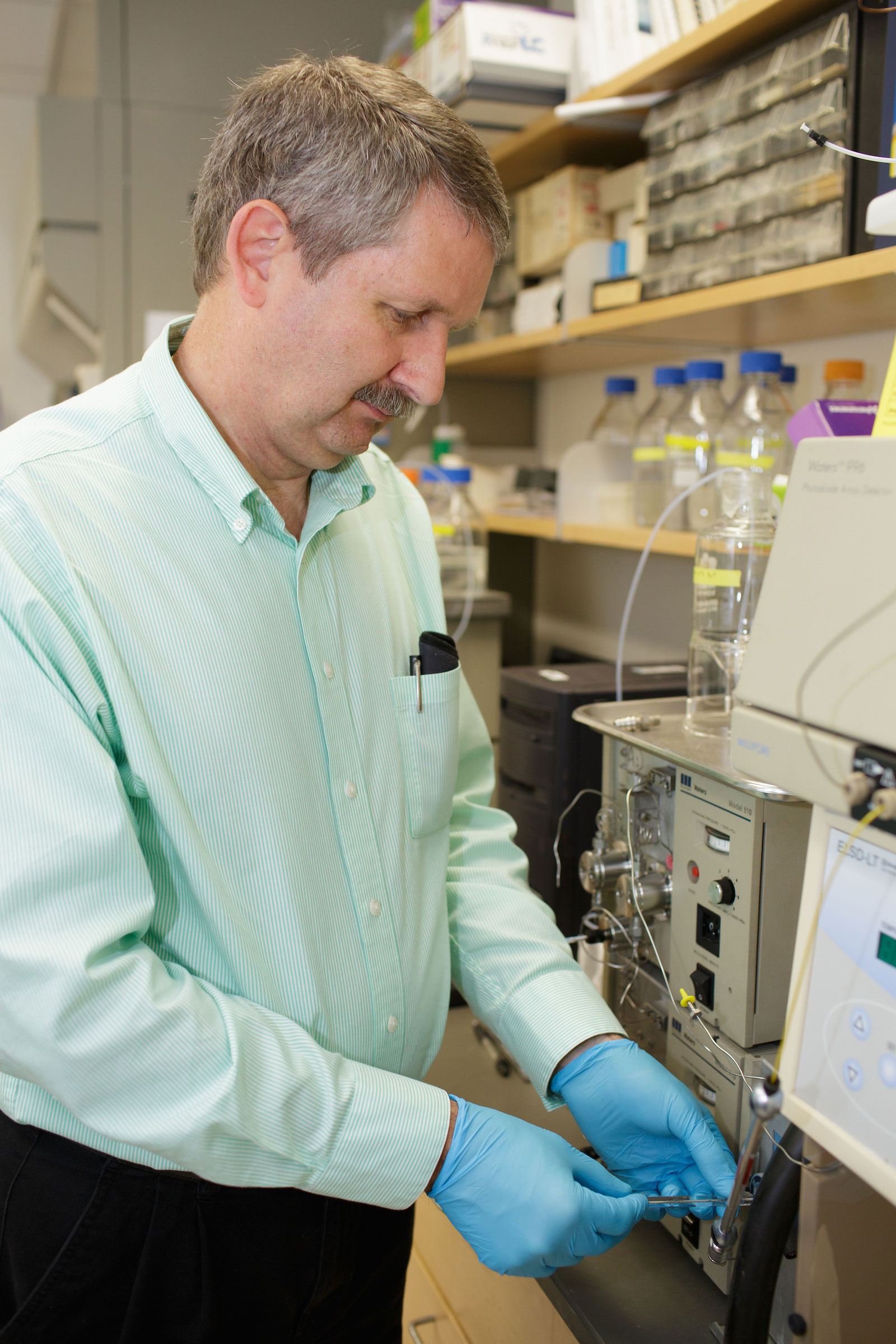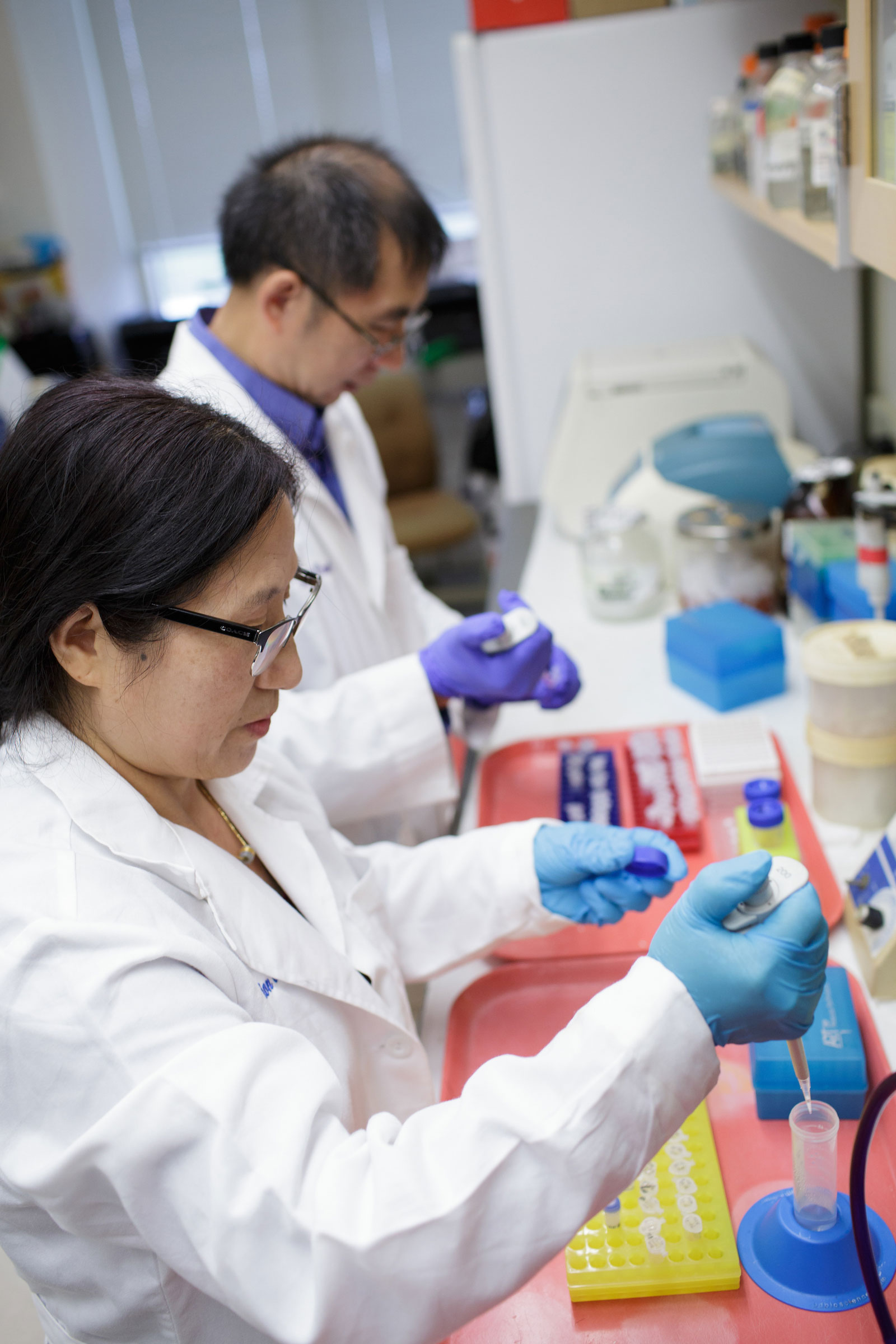FGF-P is a unique peptide (U.S. Patent Application 61/061,851P) mimetic with all the advantages of FGF2. Indeed, it binds the FGFR1 with similar or improved biology compared to native FGF2 without the modal tachyphylaxis seen with FGF2. It is a stable circular peptide and can be synthesized directly, leading to simple quality assurance, reproducibility of synthesis, and bioactivity.
We are now embarking on the challenge of demonstrating further that FGF-P can mitigate radiation-induced gastrointestinal syndrome to a degree sufficient to reduce the combined effects of radiation gastrointestinal syndrome with whole body radiation exposure. We anticipate that our product will improve healing and could be the crucial factor in preventing mortality. We have completed SBIR Phase I funding (Grant number: 1R43AI098330-01) for ‘Fibroblast growth factor-peptide (FGF-P) to treat post-irradiation gastrointestinal syndrome’ to demonstrate that FGF-P is fit for that purpose and have applied for Phase II funding.
We believe that FGF-P is the best candidate to date for mitigation of GI syndrome. We are aware that the industry has previously tried and failed to produce an FGF mimetic. Therefore, we have the first and only reliably synthesizable FGF. A body of 30 years’ worth of literature on FGFs illustrates the near certain probability of this project’s success.
Furthermore, FGF-P has other potential uses for peacetime, as well as national emergency situations. For example, FGF-P has the potential to mitigate radiation-induced skin injuries, heal ischemic wounds, and mitigate bone marrow syndromes. Hence, we believe this first step will be important as we establish the roles FGF-P might play in case of a radiological/nuclear event.



